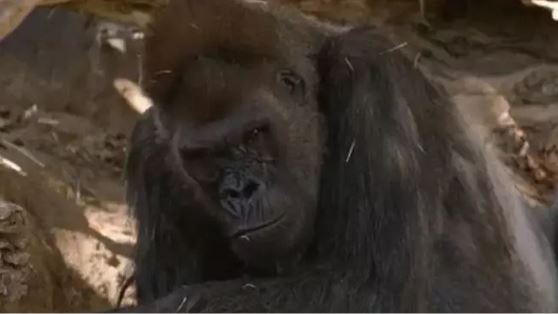
Zoo Gorillas Test Positive For Coronavirus And Cough After ‘Catching From Human’
Published on January 12, 2021 at 11:48 AM by Face of Malawi
A troop of gorillas in a zoo in the US are thought to be the first primates to have contracted Covid-19.
Staff at the San Diego Zoo Safari Park have revealed that eight gorillas there have tested positive for the deadly disease, with a number of them having been seen to be coughing as a result.
According to park keepers, it’s thought they caught the virus off a member of the park’s wildlife care team, despite them following all ‘safety protocols from the Centers for Disease Control and Prevention (CDC) and San Diego County Public Health’ as well as wearing PPE whenever near the animals.
Speaking about the news, the park’s executive director, Lisa Peterson, said: “Aside from some congestion and coughing, the gorillas are doing well.
“The troop remains quarantined together and are eating and drinking. We are hopeful for a full recovery.”
Adding: “This is wildlife, and they have their own resiliency and can heal differently than we do.”
Vets at the zoo are monitoring the gorillas’ health and providing vitamins, fluid, and food, though it’s understood that no specific treatment is being administered.
Staff at the safari tested some faecal samples of the gorillas after two of the troop started coughing on 6 January.
And the US Department of Agriculture National Veterinary Services Laboratories (ANVSL) confirmed the positive results yesterday (11 January).
A spokesperson for the ANVSL said: “The test results confirm the presence of SARS-CoV-2 in some of the gorillas and does not definitively rule out the presence of the virus in other members of the troop.”
In the past, it has been known for tigers and minks to contract coronavirus.
Last year, a tiger at the Bronx Zoo has tested positive for the deadly virus.
The Wildlife Conservation Society confirmed tests were done on Nadia, a four-year-old female Malayan tiger, after she developed a dry cough.

The tiger’s sister Azul, two Amur tigers and three African lions also experienced the same symptoms.
The test was carried out by USDA’s National Veterinary Services Laboratory, based in Ames, Iowa.
In a statement released at the time, the Wildlife Conservation Society said: “We tested the cat out of an abundance of caution and will ensure any knowledge we gain about COVID-19 will contribute to the world’s continuing understanding of this novel coronavirus.
“Though they have experienced some decrease in appetite, the cats at the Bronx Zoo are otherwise doing well under veterinary care and are bright, alert, and interactive with their keepers. It is not known how this disease will develop in big cats since different species can react differently to novel infections, but we will continue to monitor them closely and anticipate full recoveries.
“The four affected tigers live in the zoo’s Tiger Mountain exhibit. One male Amur tiger that also lives at Tiger Mountain has not exhibited any clinical signs, and a Malayan tiger and two Amur tigers at the zoo’s Wild Asia exhibit have also not exhibited any clinical signs.”




